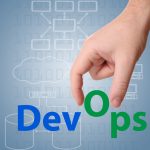Bringing observability and AI into your legacy modernization plan

Through evolving legacy modernization, a clear need for automation arose to bring actionable insights to IT and DevOps teams.
Unified monitoring, log management and event management vendors are finding ways to embrace Observability in their tech stacks. And while the overall functionality doesn’t change, these adjustments have led to confusion between IT and DevOps teams. IT Operations and Service Management (ITOSM) professionals are skeptical that Observability is a marketing ploy rather than a tool that actually implements technological change. DevOps professionals, on the other hand, are hesitant of the idea of repurposing legacy tools. So what should vendors do when transitioning standard monitoring technology to use Observability in a meaningful way?
4 tips for creating a DevOps implementation strategy

By its very design, DevOps is a disruptive technology -- but one that can profoundly and positively impact how businesses manage and deliver software projects. As one of the most complex technologies to implement, DevOps includes multiple phases critical to achieving successful digital transformation. But, when it’s managed correctly, DevOps is the most powerful tool available in modern software development.
With proper guidance, organizations that take the leap and deploy DevOps will become adept with its unique structure and realize its ability to create and deliver results at the speed modern business demands. While there are no shortcuts to implementing DevOps, general recommendations to apply will benefit any business considering its implementation.
Why enterprises need to make the shift to DevSecOps now [Q&A]
Culture not tech is a barrier to DevOps success

While 83 percent of IT decision makers say their organizations are implementing DevOps practices, many have stalled at a mid-stage of evolution.
A report from infrastructure automation company Puppet shows that it isn't technology but rather cultural blockers which remain the biggest hurdle to reaching DevOps maturity.
Microservices, containers, and Kubernetes have created security blind spots

A new study released today from Dynatrace finds that CISOs are increasingly concerned that rising adoption of cloud-native architectures and DevSecOps practices may have broken traditional approaches to application security.
The research finds that 89 percent of CISOs believe microservices, containers, and Kubernetes have created application security blind spots. While 71 percent admit they are not fully confident code is free of vulnerabilities before going live in production.
The future of service management in the DevOps era

Whether you view your organization as having an agile approach or not, in 2020, companies had no choice but to drastically change their way of working as the world rapidly pivoted to remote working. Organizations that had already embraced agile principles had the advantage of being able to adapt faster to the pandemic and meet the demands of their employees, who were suddenly all working from home.
Now, as we start to slowly emerge from multiple lockdowns and restrictions, one interesting side effect of COVID-19 is that it has lowered our collective tolerance for slow, overly bureaucratic processes. We all crave an agile approach, whatever our definition of agile might be.
More process automation needed to support digital transformation

Software engineering and IT operations teams are facing increased complexity in meeting customer and employee demands, as well as remote and hybrid work policies ushered in by COVID-19.
The key to dealing with this is increased process automation in IT operations (ITOps) according to a new report from DevOps process orchestration company Transposit.
Why security and observability are key to software development [Q&A]
Breaking down the silos between IT and business [Q&A]

Until the cloud and the idea of big data came along it wasn't unusual for different parts of a firm to have their own information separate from the rest of the business.
But digital transformation initiatives recognize that all information is important to the organization and that silos are increasingly a bad thing.
Get 'Learning DevOps' ($27.99 value) FREE for a limited time

The implementation of DevOps processes requires the efficient use of various tools, and the choice of these tools is crucial for the sustainability of projects and collaboration between development (Dev) and operations (Ops).
This book presents the different patterns and tools that you can use to provision and configure an infrastructure in the cloud.
Developers play a key role in digital transformation despite COVID

Developers are playing a key role in helping enterprises meet their digital transformation goals despite facing significant challenges from COVID-19 according to new research from Couchbase.
The survey of 450 European and US senior IT decision makers finds 92 percent of respondents believe that DevOps could have a revolutionary impact on their digital transformation efforts, while 63 percent say that the flexibility to change their goals when needed has been helpful in meeting their digital transformation goals.
Over 60 percent of DevOps teams would sacrifice container security for speed

A new survey of container security from NeuVector shows that 63 percent of respondents would curtail or restrain security measures in order to maintain faster production.
There's also a lack of consensus on who is responsible for securing container environments with 42 percent saying security teams, 30 percent development, and 28 percent operations. This is despite 32 percent saying security is their organization's single most important priority as they roll out containers and Kubernetes initiatives.
Poor quality software costs businesses over $2 trillion

The cost of poor software quality in the US in 2020 was approximately $2.08 trillion according to a report released today produced by the Consortium for Information and Software Quality (CISQ) and sponsored by Synopsys.
The figure includes poor software quality resulting from software failures, unsuccessful development projects, legacy system problems, technical debt and cybercrime enabled by exploitable weaknesses and vulnerabilities in software.
More automation, earlier security and 'Switzerland platforms' -- development predictions for 2021
MACH and what it means for development [Q&A]

Launched in June of this year, the MACH Alliance (MACH standing for Microservices based, API-first, Cloud-native SaaS and Headless) is a non-profit group of tech leaders advocating for a new, open and best-of-breed enterprise technology ecosystem.
The Alliance aims to help enterprise organizations navigate the complex modern technology landscape with the belief that competitive advantage doesn't come from owning the stack, but rather from being free to select the best available resources for the moment.
Recent Headlines
Most Commented Stories
BetaNews, your source for breaking tech news, reviews, and in-depth reporting since 1998.
© 1998-2025 BetaNews, Inc. All Rights Reserved. About Us - Privacy Policy - Cookie Policy - Sitemap.

